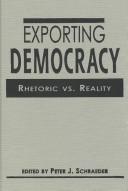| Listing 1 - 10 of 230 | << page >> |
Sort by
|
Book
ISBN: 9788282650434 8282650439 Year: 2012 Publisher: Oslo : Dreyer,
Abstract | Keywords | Export | Availability | Bookmark
 Loading...
Loading...Choose an application
- Reference Manager
- EndNote
- RefWorks (Direct export to RefWorks)
Europa er inne i en brytningstid. Kartet stemmer dårlig overens med terrenget. De arvede sjablongene, begrepene som vi har brukt til å forstå vår samtid med dekker bare deler av dagens virkelighet. Resultatet er at mange av de viktigste trendene utspiller seg bortenfor det offentlige ordskiftet: Hvilken effekt hadde det at arbeiderklasse ble trygdeklasse? Hvorfor styrkes islam når kristendommen svekkes? Har det noe å si at Europa ikke gjør plass til de unge i arbeidsmarkedet? Hvorfor er multikulturalismen så farlig? Hvorfor vokser de nye høyrepartiene seg sterke i Europa - og hvor har det blitt av sosialismen? Dette er spørsmål som Asle Toje tar opp i denne boken. Boken er en reise gjennom Europa og Norge og en finger på pulsen til det Europeiske demokrati, hvordan står det til med vår Frihet, Likhet og Brorskap?.
Demokrati. --- Essays. --- Europa.
Book
ISBN: 0745647197 9780745647197 Year: 2013 Publisher: Cambridge : Polity,
Abstract | Keywords | Export | Availability | Bookmark
 Loading...
Loading...Choose an application
- Reference Manager
- EndNote
- RefWorks (Direct export to RefWorks)
Autonomy (Philosophy). --- Democracy. --- Demokrati. --- Economic security. --- Equality. --- Frihet. --- Human security. --- Jämlikhet. --- Liberty. --- Mänsklig säkerhet.
Book
ISBN: 9788799539451 Year: 2017 Publisher: [Allingåbro] : DEO,
Abstract | Keywords | Export | Availability | Bookmark
 Loading...
Loading...Choose an application
- Reference Manager
- EndNote
- RefWorks (Direct export to RefWorks)
Den Europæiske Union. --- Den Europæiske Union. --- demokrati. --- politiske forhold. --- unionspolitik. --- Europa.
Book
ISBN: 9780812223309 0812223306 1322520887 0812290747 Year: 2014 Publisher: Philadelphia : University of Pennsylvania Press,
Abstract | Keywords | Export | Availability | Bookmark
 Loading...
Loading...Choose an application
- Reference Manager
- EndNote
- RefWorks (Direct export to RefWorks)
Since the financial meltdown of 2008, political protests have spread around the world like chain lightning, from the "Occupy" movements of the United States, Great Britain, and Spain to more destabilizing forms of unrest in Tunisia, Egypt, Russia, Thailand, Bulgaria, Turkey, and Ukraine. In Democracy Disrupted: The Politics of Global Protest, commentator and political scientist Ivan Krastev proposes a provocative interpretation of these popular uprisings-one with ominous implications for the future of democratic politics.Challenging theories that trace the protests to the rise of a global middle class, Krastev proposes that the insurrections express a pervasive distrust of democratic institutions. Protesters on the streets of Moscow, Sofia, Istanbul, and São Paulo are openly suspicious of both the market and the state. They reject established political parties, question the motives of the mainstream media, refuse to recognize the legitimacy of any specific leadership, and reject all formal organizations. They have made clear what they don't want-the status quo-but they have no positive vision of an alternative future.Welcome to the worldwide libertarian revolution, in which democracy is endlessly disrupted to no end beyond the disruption itself.
Social change --- Political systems --- Protest movements. --- Democracy. --- 214 Parlement --- Self-government --- Political science --- Equality --- Representative government and representation --- Republics --- Social movements --- Demokrati --- Proteströrelser --- Protest movements --- Demokrati. --- Proteströrelser. --- Democracy --- Political Science. --- Public Policy.
Book
ISBN: 1641133406 9781641133401 9781641133388 1641133384 9781641133395 1641133392 Year: 2018 Publisher: Charlotte, NC
Abstract | Keywords | Export | Availability | Bookmark
 Loading...
Loading...Choose an application
- Reference Manager
- EndNote
- RefWorks (Direct export to RefWorks)
Democracy and education --- Civics --- Political culture --- Populism --- Study and teaching --- demokrati --- undervisning --- medborgerskap --- politisk kultur --- politikk --- populisme --- usa

ISBN: 9786611769741 1281769746 0191539112 9780191539114 9780191775574 0191775576 9780191577659 0191577650 9781281769749 9780192802507 019280250X Year: 2002 Publisher: Oxford : Oxford University Press,
Abstract | Keywords | Export | Availability | Bookmark
 Loading...
Loading...Choose an application
- Reference Manager
- EndNote
- RefWorks (Direct export to RefWorks)
Crick argues that democracy is a necessary but not a sufficient condition for good government, and that ideas of the rule of law, and of human rights, should in some situations limit democratic claims.
Democracy. --- Democracy --- Self-government --- Political science --- Equality --- Representative government and representation --- Republics --- History. --- demokrati --- politikk --- historie --- Démocratie --- Histoire --- Democracy - History

ISBN: 1588269701 1588261638 9781588261632 9781588269706 9781588260567 1588260569 Year: 2002 Publisher: Boulder, Col. Lynne Rienner Publishers
Abstract | Keywords | Export | Availability | Bookmark
 Loading...
Loading...Choose an application
- Reference Manager
- EndNote
- RefWorks (Direct export to RefWorks)
In recent years, debates within academic and policymaking circles have gradually shifted—from a Cold War focus on whether democracy constitutes the best form of governance, to the question of whether (and to what degree) international actors should be actively involved in democracy promotion. This book offers the first comprehensive analysis of international efforts to promote democracy during the post–World War II period, with an emphasis on developments since 1989.The authors assess the efforts of major industrialized democracies, multilateral actors, and NGOs. They find that the success of these endeavors is constrained by several realities, ranging from the often significant gap between the rhetoric and the reality of actual policies, to the dilemma that occurs when the goal of democracy clashes with other foreign policy interests.
Democratization. --- World politics --- Political development. --- Development, Political --- Political science --- Democratic consolidation --- Democratic transition --- New democracies --- Demokrati --- Demokratisering --- Politisk udvikling --- Democratization --- World politics - 1989 --- -Political development --- Political development
Book
ISBN: 022654995X 9780226549958 9780226549781 022654978X 9780226549811 022654981X Year: 2018 Publisher: Chicago
Abstract | Keywords | Export | Availability | Bookmark
 Loading...
Loading...Choose an application
- Reference Manager
- EndNote
- RefWorks (Direct export to RefWorks)
The 2016 presidential election campaign and its aftermath have underscored worrisome trends in the present state of our democracy: the extreme polarization of the electorate, the dismissal of people with opposing views, and the widespread acceptance and circulation of one-sided and factually erroneous information. Only a small proportion of those who are eligible actually vote, and a declining number of citizens actively participate in local community activities. In Flunking Democracy, Michael A. Rebell makes the case that this is not a recent problem, but rather that for generations now, America's schools have systematically failed to prepare students to be capable citizens. Rebell analyzes the causes of this failure, provides a detailed analysis of what we know about how to prepare students for productive citizenship, and considers examples of best practices. Rebell further argues that this civic decline is also a legal failure-a gross violation of both federal and state constitutions that can only be addressed by the courts. Flunking Democracy concludes with specific recommendations for how the courts can and should address this deficiency, and is essential reading for anyone interested in education, the law, and democratic society.
Civics --- Courts --- Judicial process --- Study and teaching --- Law and legislation --- Social aspects --- demokrati --- rettssystemer --- lover --- lovgivning --- juridiske prosesser --- sosiale aspekter --- borgerdeltakelse --- opplæring --- undervisning --- USA
Book
ISBN: 9781907301780 9781910259184 9781910259269 9781910259276 9781910259283 190730178X 1910259187 Year: 2014 Publisher: Colchester, U.K. ECPR Press
Abstract | Keywords | Export | Availability | Bookmark
 Loading...
Loading...Choose an application
- Reference Manager
- EndNote
- RefWorks (Direct export to RefWorks)
Political parties --- Political systems --- Political sociology --- Mair, Peter --- Political parties. --- Democracy. --- #SBIB:324H43 --- Self-government --- Political science --- Equality --- Representative government and representation --- Republics --- Parties, Political --- Party systems, Political --- Political party systems --- Divided government --- Intra-party disagreements (Political parties) --- Political conventions --- Politieke structuren: politieke partijen --- Mair, Peter. --- Ireland --- Politics and government. --- Politiska partier --- Demokrati --- Politiska partier. --- Demokrati. --- Democracy

ISBN: 0691089485 0691089493 9786613133311 1400824451 1283133318 1400814553 9781400814558 9781400824458 9780691089492 9781283133319 6613133310 140081765X Year: 2010 Publisher: Princeton, NJ
Abstract | Keywords | Export | Availability | Bookmark
 Loading...
Loading...Choose an application
- Reference Manager
- EndNote
- RefWorks (Direct export to RefWorks)
Why do democracies win wars? This is a critical question in the study of international relations, as a traditional view--expressed most famously by Alexis de Tocqueville--has been that democracies are inferior in crafting foreign policy and fighting wars. In Democracies at War, the first major study of its kind, Dan Reiter and Allan Stam come to a very different conclusion. Democracies tend to win the wars they fight--specifically, about eighty percent of the time. Complementing their wide-ranging case-study analysis, the authors apply innovative statistical tests and new hypotheses. In unusually clear prose, they pinpoint two reasons for democracies' success at war. First, as elected leaders understand that losing a war can spell domestic political backlash, democracies start only those wars they are likely to win. Secondly, the emphasis on individuality within democratic societies means that their soldiers fight with greater initiative and superior leadership. Surprisingly, Reiter and Stam find that it is neither economic muscle nor bandwagoning between democratic powers that enables democracies to win wars. They also show that, given societal consent, democracies are willing to initiate wars of empire or genocide. On the whole, they find, democracies' dependence on public consent makes for more, rather than less, effective foreign policy. Taking a fresh approach to a question that has long merited such a study, this book yields crucial insights on security policy, the causes of war, and the interplay between domestic politics and international relations.
Democracy --- War --- Démocratie --- Guerre --- Democracy. --- War. --- Démocratie --- Armed conflict (War) --- Conflict, Armed (War) --- Fighting --- Hostilities --- Wars --- Self-government --- International relations --- Military art and science --- Peace --- Political science --- Equality --- Representative government and representation --- Republics --- Demokrati --- Krig --- Sikkerhedspolitik
| Listing 1 - 10 of 230 | << page >> |
Sort by
|

 Search
Search Feedback
Feedback About UniCat
About UniCat  Help
Help News
News